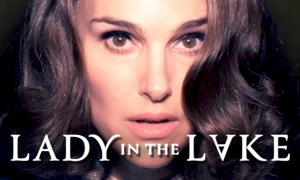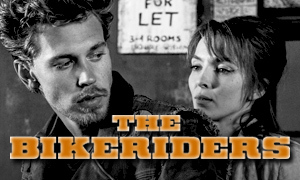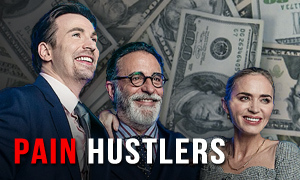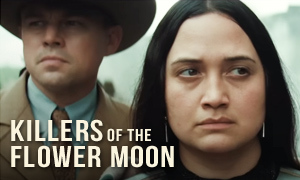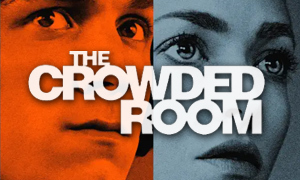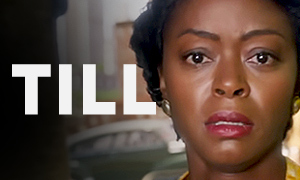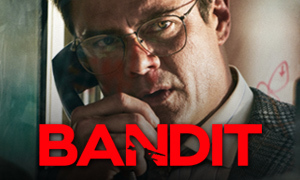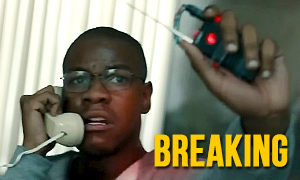A Prayer Before Dawn: History vs. Hollywood
| REEL FACE: | REAL FACE: |
Joe Cole
Born: November 28, 1988 Birthplace: Kingston upon Thames, London, England, UK | Billy Moore
Birthplace: Liverpool, England, UK |
What led to Billy Moore's decline into a life of crime and drugs?
Moore suffered an abusive childhood at the hands of his alcoholic father, as described in his book A Prayer Before Dawn, on which the movie is based. "I was brought up being told I was worthless and thinking there was no value in life," says Moore. He grew up in poverty in Liverpool's council estates (public housing) in Walton, where he began his slow slide into a life of crime and drug addiction (cocaine and heroin). "I felt alone and got mixed up with the kids on the corner, then drugs and crime were on the scene." He began committing crimes at the age of 16. Moore's backstory as a career criminal is kept to a minimum in the movie, which chooses to focus on his time in a notorious Thailand prison. -Liverpool Echo
Was his imprisonment in Thailand the first time he had been in jail?
No. In researching the A Prayer Before Dawn true story, we learned that the Liverpool-born Moore has spent a total of 15 years behind bars in 22 different prisons, mainly for burglary and drug offenses, often using the one to fuel the other. He had been in and out of UK prisons long before his incarceration in Thailand, doing his first prison stint at age 17. In addition to burglary and drugs, he has also been convicted for violence, robbery and dangerous driving. -Liverpool Echo
How did boxer Billy Moore end up in Thailand?
After getting clean with the help of a rehab program, Billy Moore took the trip to Thailand as a means to turn his life around, hoping to give up drugs, alcohol and burglary, and start fresh as a boxer and stunt man. He arrived in Thailand in 2005 and taught English there. While he was clean, he even worked as a stunt double for Sylvester Stallone on Rambo IV. It was when he got back into fighting there that he got wrapped back up in drugs and crime. He had started to train in Muay Thai boxing, the country's national sport. "I got involved with underground [Muay Thai] fighting and found bad company again." He became addicted to crystal meth and ya ba (a highly addictive methamphetamine). -Liverpool Echo
The A Prayer Before Dawn movie opens with Moore already in Thailand, fighting in one of Bangkok's backstreet gyms. "It's not supposed to be a biopic," says actor Joe Cole, who portrays Moore in the film. "It's just this one portion of a guy's life." -The National
Why exactly was Billy Moore arrested in Thailand?
"I formed a [drug] habit and was arrested for handling a stolen mobile phone, I got three years," Moore told the Liverpool Echo. While fact-checking the movie against his book, we discovered that Moore had in his possession "a dozen or so cell phones and over 50 SIM cards" that he had bought "from a couple of Burmese junkies."
On his first night in prison, was Billy Moore really placed in a mass cell where there was a dead body?
Yes. The A Prayer Before Dawn true story confirms that on his first night in Chiang Mai prison, Moore slept on the floor of a mass cell with approximately 70 other inmates and a dead body next to him. Death was a commonplace occurrence in Thai prisons, and over the course of a week, he once counted 25 bodies being taken out covered in white sheets (Shaun Attwood Billy Moore Interview). "Thai prison, like all prisons, reveals the dark side of a person’s soul," says Moore. "It is how people behave when there are no constraints and outside limits are nonexistent. All the fury of the Thai people against the West is directed fully at Western prisoners; in the provincial prisons, at least, where little or no oversight exists." Moore says that foreigners like himself weren't uncommon. (Liverpool Echo).
What year did Billy Moore go into the Thai prison?
After again being consumed by addiction, dealing and violence, he was arrested in 2007 for handling stolen goods and given a three-year sentence. He was first sent to Chiang Mai Central prison. It was at Chiang Mai that he got involved with the prison's Muay Thai boxing team.
Not long before his arrest, he had been in a scooter accident that left him with an injury to his stomach, which was aggravated by fighting in prison. "The bike had split my stomach, I had a hernia and had infections," Moore said. He endured several surgeries in the hospital before being transferred to a different prison.
"They took me from Chiang Mai prison to Bangkok which was 15 hours, with a catheter sticking out of my stomach." 39 surgical staples were used to hold the incision together. Moore was transferred to Klong Prem prison. "It made Chiang Mai prison look like a kindergarten," Moore said of the brutal and corrupt Bangkok prison.
Reviews and descriptions for the movie, as well as the book, reference Klong Prem prison by the nickname "Bangkok Hilton." This nickname has been falsely attributed to Klong Prem. The real Bangkok Hilton is Thailand's Bang Kwang Central Prison. It was that prison that was used as the prototype for the fictional prison in the three-part 1989 Australian miniseries Bangkok Hilton starring Nicole Kidman and Hugo Weaving.
Did Billy Moore escape from prison and come back?
He escaped from the hospital where he was recovering after having surgery to repair an injury to his stomach. After sneaking out in his shackles during the night, he realized he would have a better chance at survival if he stayed in the hospital and went back to prison. Considered an unlawfully-at-large fugitive, he could be shot on site while on the run. He had "walked for what seemed like miles" before deciding to return to his hospital ward. -A Prayer Before Dawn book
What made Billy Moore decide to write the book on which the movie is based?
Not only was the writing of A Prayer Before Dawn therapeutic for Moore, he also wanted to expose the horrors he had seen while incarcerated in Klong Prem prison in Bangkok. "I decided to write it when I was in the prison in Bangkok," says Moore of the book. "I couldn’t believe what I was witnessing; murder, rape, corruption and the inhumane degradation. You couldn’t even invent or conjure up the things I saw and I just felt it was important to write my experiences down on notes that soon developed into a book." The bestselling memoir was published in 2014 under the title A Prayer Before Dawn: A Nightmare in Thailand. -Skrufff.com
Did Billy Moore use drugs while in prison?
Yes. Fact-checking the movie revealed that while in Klong Prem prison, Moore got high on heroin in part to escape the terrifying brutality of his surroundings. He used heavily for months. Drugs had also helped take away the pain in his stomach, which had plagued him since his surgery. "Heroin addiction is rampant, madness is a regular side-effect, and no one emerges from the experience unscathed," he told the Liverpool Echo. Moore says that drugs were a massive problem in Klong Prem prison. This included crystal meth, heroine and ya ba. Drug use helped to spread diseases like hepatitis and HIV, which were common.
Did Billy Moore really bite into a man's neck?
One of the more memorable moments in the movie is when Billy Moore (Joe Cole) sinks his teeth into a man's neck and doesn't let go. He then stands up in a rage with the man's blood streaming down his face. In the film, this happens after he is refused painkillers (Tramadol). However, according to the A Prayer Before Dawn true story, this actually happened when Moore got into a fight after trying to stick up for two old men who were getting verbally and physically picked on by two Australians and an Iranian named Ali.
Moore asked the three men to lay off, but instead they confronted him. The Iranian, Ali, was up in Moore's face and the two Australians were standing beside him, one holding a chair and the other wearing cheap metal rings on both hands. Ali threw a punch but Moore lunged at him before it connected and sunk his teeth into Ali's neck. He didn't let go, even as he was struck with the chair in the back of the head. He was finally removed by guards who grabbed him around the neck.
Moore did punch a guard, but it wasn't until he was in the medic's office and they were making fun of him, saying he wasn't a good boxer.
Is the transgender inmate named Fame based on a real prisoner?
Not exactly. There was no one named Fame in the memoir. However, the real Billy Moore was indeed befriended and helped by various "ladyboy" inmates. In the movie, Billy (Joe Cole) strikes up a friendship with a transgender inmate named Fame (Pornchanok Mabklang), who helps him come up with a scheme to get the money he needs to join the prison's Muay Thai boxing team. Feminine looking Thai prisoners were commonplace and Billy refers to them as "ladyboys" in his book, which is an English translation of "Kathoey," a transgender female or effeminate gay male in Thailand.
Did Billy Moore have a romance with a transgender inmate?
No. The "ladyboy" inmate named Fame, who Billy Moore (Joe Cole) becomes involved with in the movie, is a fictional character. In attempting to answer the question, "How accurate is A Prayer Before Dawn?" we learned that Billy never became romantically involved with a transgender inmate, nor did he have physical relations with any of them. They did try to come on to him, but he rejected their advances. Like in the movie, the most attractive ladyboys were kept out of the general population for fear that they would be raped. It's true that they were treated like celebrities by the other inmates.
How much time did Billy Moore spend in Thailand prisons?
Moore was sentenced to three years and served just over two years in Thailand prisons, first spending time in Chiang Mai Central Prison before being transferred to the notorious Klong Prem prison in Bangkok, an infamously brutal facility. He was repatriated to England in 2010 and served close to eight more months in the UK's HMP Wandsworth, an old Victorian prison in South London, before being released on amnesty by the King of Thailand. "Thai prison is a surreal place," says Moore. "Like Thai society itself, it’s a strange mixture of casual brutality and indifference to human suffering." -Liverpool Echo
Did Billy really witness a young man being brutally raped who took his own life afterwards?
Though this specific incident appears to be fictional, it's not too far off from what Moore describes in his memoir. He talks about a Singaporean man being violently raped and beaten, who walked around like a zombie afterward. He also mentions being traumatized by the murders and rapes that occurred inside the prison on a regular basis.
How did Billy Moore get involved in Muay Thai boxing while in the Thai prison?
The prison guards told Moore that he was gonna die if he kept letting himself be a target of violence. "You need to do something different," the guards told Moore. "You need to change." One of the commandos (prison guards) told Moore, "Look, you're like the Oscar De La Hoya of this prison. Why don't you get in the ring? Why don't you fight with those guys instead of with the gangs? With that, it became like family orientated, and he invited me into their gym, took care of me, sat with me, broke bread with me." -Shaun Attwood Billy Moore Interview
How is Muay Thai different from traditional boxing?
Muay Thai, the national sport of Thailand, differs from traditional boxing in that fighters use kicks, elbows, and knee strikes in addition to punches. Known as the "art of eight limbs," the sport harnesses eight "points of contact." The roots of the sport can be traced back to the middle of the 16th century. A Muay Thai fighter is called a Nak Muay, while Western fighters are called Nak Muay Farang, or "foreign boxer."
Was Billy really injured to the point where he was told he should no longer fight?
In the A Prayer Before Dawn movie, Billy (Joe Cole) is told that boxing and massive drug abuse led to a rupture that could result in him bleeding to death if he continues to fight. In real life, Billy's worsening stomach injury (hernia) actually stemmed from a prior scooter accident while he was in Laos (he was high on drugs, got distracted, and crashed his scooter into two oncoming bikes). The injury did plague him during a boxing match (not a Muay Thai match) against the prison's best boxer, an inmate named Pon who hated foreigners. Like in the film, Billy emerged victorious by way of a knockout.
Complications from stomach surgery to repair the hernia stopped him from competing on the prison's Muay Thai boxing team.
Did Billy Moore really try to kill himself while in the Thai prison?
No. Moore never tried to slit his wrist like in the movie. However, he did make the decision to hang himself, but a young Thai inmate who he asked to help him talked him out of it, telling him that the rest of the prisoners are beaten when someone commits suicide. He didn't want anybody else to be punished for his selfishness.
Did fighting help get Billy Moore out of the Thai prison?
Not directly. Fighting is considered a charity event put on by Thailand's Department of Corrections. It allows prisoners to earn money and get reduced sentences. It also makes their stay much more bearable. In addition to being able to leave the prison to compete in matches, fighting helped Billy Moore get out of the worst part of the prison. Competing in inter-prison Muay Thai boxing matches allowed him to escape the hellish prison existence of the grim, overcrowded cells that he had initially found himself in, where even access to a chair was considered a luxury. Like in the movie, after he joined the prison's Muay Thai team, he was moved to the cushier "boxing" cell. He was able to leave his cell to train, and fighting indeed helped him win the respect of his fellow inmates, making him less of a target. Like drugs, Muay Thai had also allowed him to mentally escape his confinement. Watch video of Thailand prison Muay Thai boxing fights.
Muay Thai boxing didn't get him a reduced sentence. The complications from his stomach injury and subsequent surgery had prevented him from boxing while in the second Thai prison, Klong Prem. In real life, he was able to leave the prison after he put in a request with the British Embassy to be repatriated.
Did the real Billy Moore get a prison tattoo on his back?
Yes, in his book he describes getting a tattoo of a Muay Thai boxer on his back, which took a week to complete. The tattoo artist, a fellow inmate, didn't use needles. He used guitar strings tied to a piece of bamboo. In the movie, it marks the moment when Billy truly becomes one with his fellow inmates. It is less important of an event in the book and is not so much a rite of passage.
Did Billy Moore watch a young man get stabbed to death while in Klong Prem prison?
Though it's not in the movie, he begins his book by describing the chilling incident. Moore states, "A young Thai, no older than twenty-five, ran past me, his face showing pure terror. He slowed and turned to look at his assailant, who then passed me swinging his metal chair, striking the victim’s head. He lost balance, slipped, and hit the concrete with a loud thud. Another man appeared with a nine-inch knife, and stood over the young man’s body.
A crowd gathered; even trusties stood and watched as the older man repeatedly plunged the knife into the young Thai’s flesh. It wasn’t done in frenzy; it was slow, cold, and calculated. ...
The knifeman kept thrusting the blade into the young man’s body, each time sinking it in up to the handle. The knife went into his neck, lower back, chest, legs, and stomach; so many times I lost count.
I stood only a few feet away, watching in fascination and feeling guilty. Finally the victim lay still and quiet, in a pool of his own blood. It was horrible. I felt bad for not helping. But what could I do? This was a Thai problem. And I was a foreigner, one of many in Klong Prem prison."
Did actor Joe Cole meet with the real Billy Moore to help make sure his depiction of Moore was accurate?
Yes. "I met with Billy many times and we became great friends, so I really got to learn what makes him tick," says Cole, who is known for his work on the TV series Peaky Blinders. "I could get into the character and know how he’d react, and that meant we didn’t need to spoon-feed the audience." The movie was shot on location in Thailand at Nakhon Pathom Prison, which was retired as a functioning prison in 2014 after 116 years of housing convicts. The actors who portrayed the other inmates in the movie were real-life former prisoners and ex-prisoner boxers who spoke no English. The final sequence was shot in an active prison in the Philippines with 3,000 prisoners roaming around. -The National
Joe Cole spent months training in Muay Thai for the role. "It was important to feel like I could handle myself and had the endurance of a fighter," says Cole. "The sparring is real and the fights were shot in long takes with no cuts, which meant we had to actually hit each other." Cole even visited Liverpool, where the real Billy Moore helped him train. -GulfNews.com
After his experience in the Thai prison, was Billy Moore ever incarcerated again?
Yes. Just like how the movie is not a story of sweeping redemption, Moore's life after getting out of the Thai prison and writing his book hasn't been all uphill. In fact, he had to miss the A Prayer Before Dawn movie premiere in the summer of 2018 because he had once again been jailed for burglary – only this time it was in the UK. -NME
Does the real Billy Moore have a cameo in the movie?
Yes. As we investigated the A Prayer Before Dawn true story, we discovered that Moore briefly appears on screen at the end as his own father.
Did Billy's dad show up at the Thailand prison?
No. In the movie, Billy's dad comes to see him in the Thailand prison. This did not happen in real life. Billy doesn't mention seeing his family again in the book until after he is released from the UK prison that he was repatriated to. He does acknowledge his father at the end of the book, writing, "Although my dad was harsh when we were young, I still love and forgive him for how he behaved when we were kids."
Billy Moore Interviews & "A Prayer Before Dawn" Behind-the-Scenes Video
Watch a 3-part interview with boxer Billy Moore, who discusses the brutality of the Klong Prem prison in Thailand. Then go behind the scenes with the actors and crew, who shot on location in a real Thailand prison.
